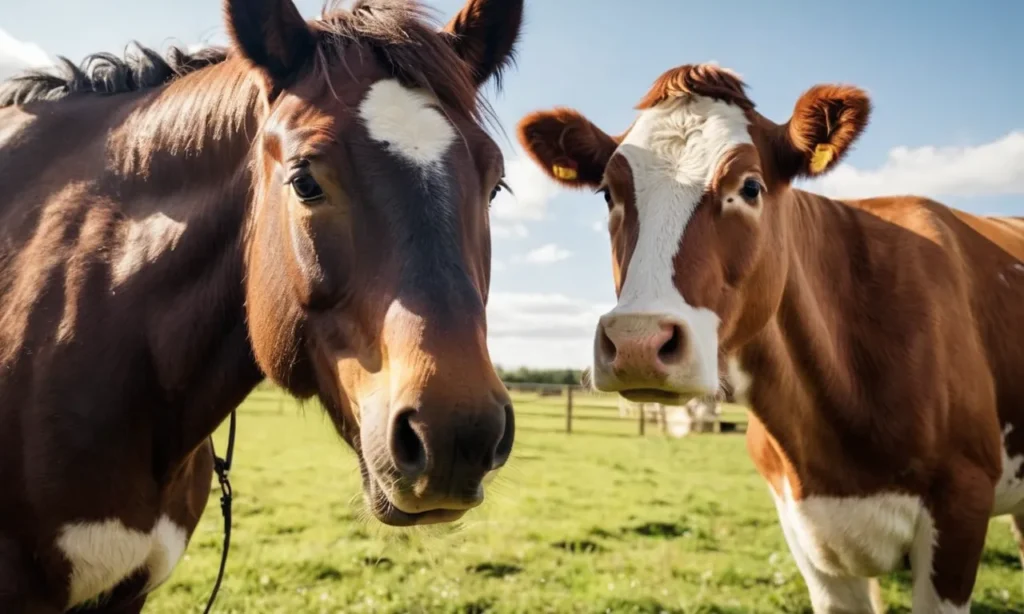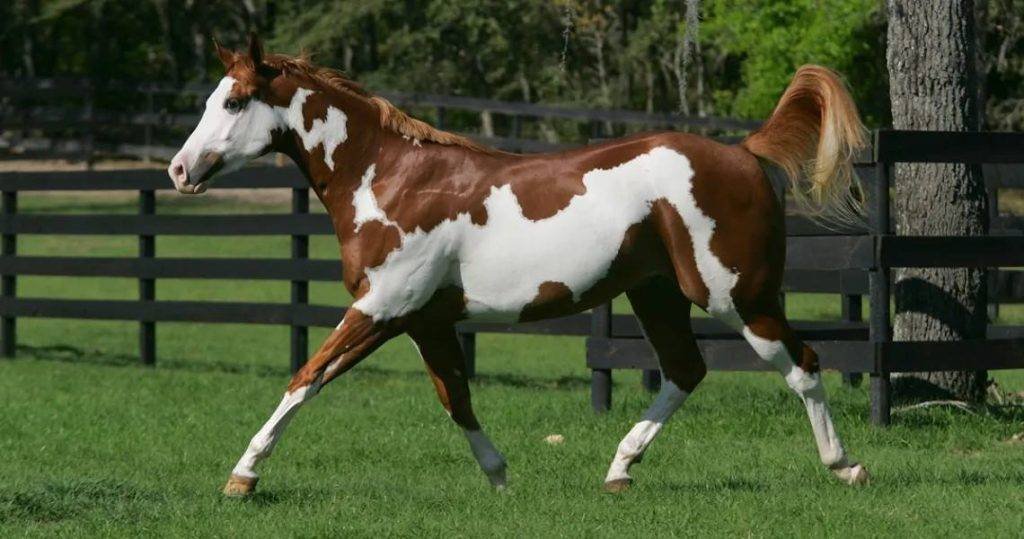As a livestock owner, you may wonder whether it’s a good idea to keep horses and cows together in the same pasture or barn.
After all, both animals have similar needs for space, food, and shelter, but are they compatible with each other? In this article, we’ll explore the pros and cons of keeping horses and cows together, helping you make an informed decision about whether they can coexist peacefully on your farm or ranch.
The Pros of Keeping Horses and Cows Together
While horses and cows are different species with their own unique behaviors and needs, many farmers and ranchers successfully keep them together. Here are some of the benefits of housing these animals in the same environment:
1. Space Sharing
Both horses and cows require ample space to roam and graze. If you have a large pasture, keeping both animals together can be a great way to maximize the use of the land. This can be especially beneficial for smaller farms or ranches where space is limited. The animals are generally tolerant of each other and can share grazing areas without feeling overcrowded.
2. Mutual Companionship
Horses and cows are social animals, and both species can benefit from the presence of others. Horses are herd animals and thrive in the company of other horses or even different species, like cows. Cows also enjoy social interaction, and having another animal nearby can help reduce stress and loneliness. This companionship can help both animals feel more secure, especially if they are kept in a larger, open space.
3. Pest Control
When kept together, horses and cows can help with natural pest control. Cows tend to graze on lower vegetation, while horses often prefer to graze on taller grasses. By grazing together, they may reduce the growth of weeds and other unwanted plants in the pasture, helping to maintain the land’s health and productivity. Additionally, their grazing habits can help keep insects and pests in check.
4. Behavioral Benefits
Sometimes, having a variety of animals together can help curb certain behavioral problems. For example, horses that are kept alone may develop issues such as anxiety or boredom, leading to undesirable behaviors like kicking or pacing. Similarly, cows that are isolated from other animals may become stressed or agitated. Keeping horses and cows together can offer them companionship and stimulation, potentially reducing these types of issues.
The Cons of Keeping Horses and Cows Together
While there are several benefits to housing horses and cows together, there are also some potential downsides to consider. It’s important to weigh the pros and cons before deciding whether this arrangement is right for your farm.
1. Different Feeding Needs
One of the main challenges of keeping horses and cows together is their differing nutritional requirements. Horses are grazers that require high-quality forage, such as grass or hay, while cows can tolerate a wider variety of grasses and are less sensitive to lower-quality feed. Cows may also require additional grains or supplements to meet their nutritional needs.
If both species are grazing together in the same pasture, you’ll need to ensure that there is enough high-quality grass for the horses and that the cows are getting the right nutrition. There’s also a risk that cows could overgraze certain areas, leaving less nutritious grass for the horses. Additionally, if cows have access to hay or grain meant for horses, this could lead to overeating and digestive problems for both species.
2. Size and Temperament Differences
Horses and cows have very different temperaments and sizes. Cows are generally larger and more slow-moving, while horses are more agile and can sometimes be skittish or nervous. If a horse feels threatened or startled, it may react by kicking or running away, which could cause injury to a cow or the horse itself. Conversely, cows can be more dominant in certain situations and may push or bully horses, especially if they feel territorial.
Although most horses and cows will get along fine in a shared space, it’s important to monitor their behavior, especially in the beginning. Some horses may feel uncomfortable around the larger, more imposing presence of a cow, while some cows may become aggressive toward horses if they feel their space is being invaded.
3. Health and Safety Concerns
Horses and cows can transmit diseases to one another, although this is generally rare if both animals are healthy and regularly vaccinated. However, certain conditions, like parasites or respiratory infections, can be spread between the two species if they are kept together. It’s essential to ensure that both horses and cows receive regular health checks and vaccinations to reduce the risk of cross-contamination.
Another potential safety concern is the risk of injuries from playing or roughhousing. Horses, especially younger ones, can sometimes be more excitable and may accidentally injure cows, or vice versa. Keeping an eye on their interactions can help minimize these risks.
4. Space Requirements
While sharing a pasture can be an advantage, it also requires that you have enough space for both species to roam comfortably. Horses and cows need ample room to graze and move around without feeling crowded or stressed. If your pasture is too small for both, you could encounter problems such as overgrazing, competition for food, and increased stress levels. It’s essential to assess the size of your pasture and make sure that it can accommodate both species without compromising their health and well-being.
So, do horses and cows get along? The answer is generally yes, but it depends on the specific animals and the environment in which they are kept. There are several benefits to keeping horses and cows together, such as shared grazing space, companionship, and pest control. However, there are also potential challenges, including differences in feeding needs, behavior, and health concerns.
If you choose to keep horses and cows together, it’s important to monitor their interactions and ensure that both species are receiving the proper nutrition and care. Providing enough space, managing their diet, and being aware of any behavioral issues will help you create a peaceful and productive environment for both horses and cows.
Ultimately, the success of keeping horses and cows together depends on your farm’s unique situation and the temperament of the animals. With the right approach, these two species can coexist harmoniously, benefiting both your land and your livestock.




